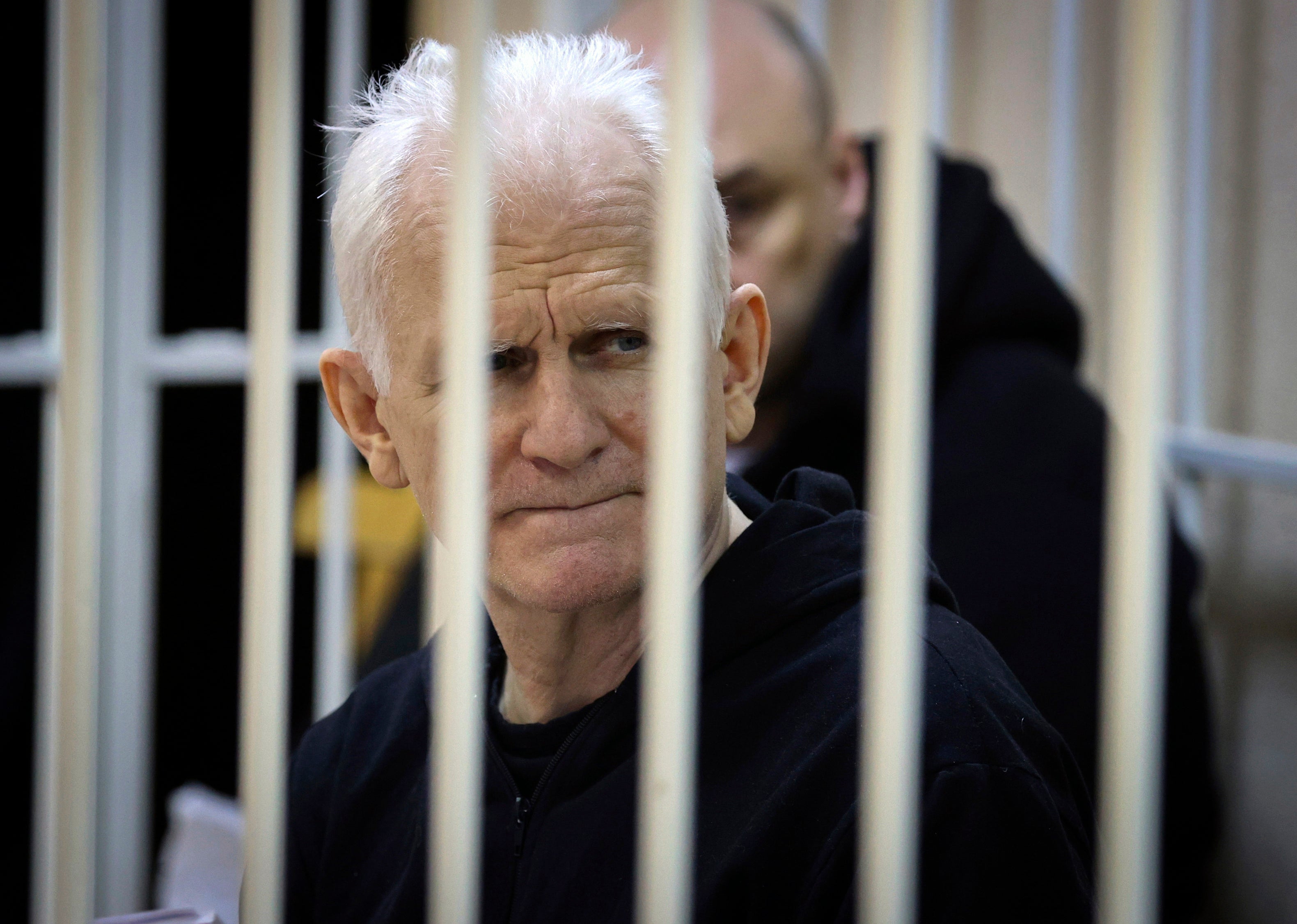Nobel peace laureate Bialiatski has been put in solitary confinement in Belarus, his wife says
The wife of Nobel Peace Prize laureate and activist Ales Bialiatski says he has been transferred to solitary confinement at his prison in Belarus

Your support helps us to tell the story
From reproductive rights to climate change to Big Tech, The Independent is on the ground when the story is developing. Whether it's investigating the financials of Elon Musk's pro-Trump PAC or producing our latest documentary, 'The A Word', which shines a light on the American women fighting for reproductive rights, we know how important it is to parse out the facts from the messaging.
At such a critical moment in US history, we need reporters on the ground. Your donation allows us to keep sending journalists to speak to both sides of the story.
The Independent is trusted by Americans across the entire political spectrum. And unlike many other quality news outlets, we choose not to lock Americans out of our reporting and analysis with paywalls. We believe quality journalism should be available to everyone, paid for by those who can afford it.
Your support makes all the difference.Nobel Peace Prize laureate and activist Ales Bialiatski has been transferred to solitary confinement at his prison in Belarus, his wife said Tuesday.
Natalia Pinchuk told The Associated Press that prison authorities have toughened conditions for the 61-year-old Bialiatski, who is serving a 10-year sentence, despite his chronic illnesses.
“Effectively, it's a prison inside prison,” she said. Prison authorities didn’t allow Bialiatski to meet with his lawyer following his transfer over alleged disciplinary violations, she said.
Bialiatski, Belarus’ top human rights advocate and one of the winners of the 2022 Nobel Peace Prize, was convicted in March with three colleagues on charges of financing actions violating public order and smuggling, accusations he denied.
He has been serving his sentence at a prison colony for repeat offenders in the city of Gorki. The facility is known for inmates being beaten and subjected to hard labor.
“The prison colony in Gorki has an awful reputation as a conveyor belt for tormenting political prisoners,” said Pinchuk, who spoke by phone from Strasbourg, where she attended a conference of the Council of Europe. “The authorities in Belarus are continuing brutal repressions, showing that they may subject anyone to torturous conditions regardless of the Nobel prize.”
The arrests of Bialiatski and his colleagues came in response to massive protests over a 2020 election that extended authoritarian President Alexander Lukashenko's rule and were seen by the opposition and many in the West as a sham.
The protests were the largest ever in Belarus. More than 35,000 people were arrested and thousands were beaten by police.
Lukashenko, a longtime ally of Russian President Vladimir Putin who backed Russia’s invasion of Ukraine, has ruled Belarus since 1994.
Bialiatski shared the 2022 Nobel with a leading Russian human rights group, Memorial, and the Ukrainian Center for Civil Liberties. He founded the Human Rights Center Viasna, Belarus' most prominent human rights group. It has been branded an “extremist organization” by Belarusian authorities.
Viasna representative Pavel Sapelka told the AP that Bialiatski's move to solitary confinement could involve restrictions on walks, prison meals and food deliveries.
“It means a significant tightening of prison conditions,” he said.
Sapelka said Belarus currently has 1,462 political prisoners.
“The Belarusian authorities are blocking access to lawyers, maintaining an information blackout and openly ignoring international norms with regard to all political prisoners,” he said.